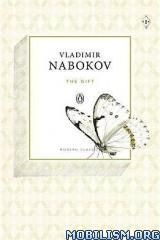5 Novels by Vladimir Nabokov
Requirements: ePUB Reader | 5.9 MB & 648 kB
Overview: Vladimir Vladimirovich Nabokov was born on April 23, 1899, in St. Petersburg, Russia. The Nabokov household was trilingual, and as a young man, he studied Slavic and romance languages at Trinity College, Cambridge, taking his honors degree in 1922. For the next eighteen years he lived in Berlin and Paris, writing prolifically in Russian under the pseudonym Sirin and supporting himself through translations, lessons in English and tennis, and by composing the first crossword puzzles in Russian. In 1925 he married Vera Slonim, with whom he had one child, a son, Dmitri. Having already fled Russia and Germany, Nabokov became a refugee once more in 1940, when he was forced to leave France for the United States. There he taught at Wellesley, Harvard, and Cornell. He also gave up writing in Russian and began composing books of criticism. Vladimir Nabokov died in Montreux, Switzerland, in 1977.
Genre: Fiction / Classics
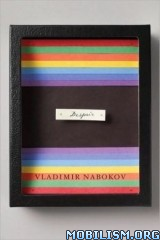
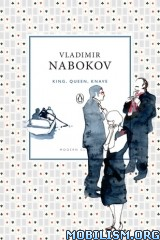
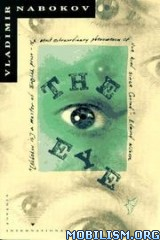
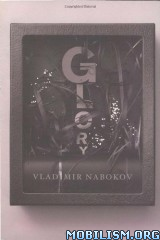
1. Despair
Extensively revised by Nabokov in 1965–thirty years after its original publication–Despair is the wickedly inventive and richly derisive story of Hermann, a man who undertakes the perfect crime–his own murder.
2. King, Queen, Knave (translated by Dmitri Nabokov)
‘Of all my novels this bright brute is the gayest’, Nabokov wrote of King, Queen, Knave. Comic, sensual and cerebral, it dramatizes an Oedipal love triangle, a tragi-comedy of husband, wife and lover, through Dreyer the rich businessman, his ripe-lipped ad mercenary wife Martha, and their bespectacled nephew Franz. ‘If a resolute Freudian manages to slip in’ – Nabokov darts a glance to the reader – ‘he or she should be warned that a number of cruel traps have been set here and there’.
3. The Eye (translated by Dmitri Nabokov)
Nabokov’s fourth novel, The Eye is as much a farcical detective story as it is a profoundly refractive tale about the vicissitudes of identities and appearances. Nabokov’s protagonist, Smurov, is a lovelorn, excruciatingly self-conscious Russian émigré living in prewar Berlin, who commits suicide after being humiliated by a jealous husband, only to suffer even greater indignities in the afterlife.
4. Glory (translated by Dmitri Nabokov)
Glory is the wryly ironic story of Martin Edelweiss, a twenty-two-year-old Russian émigré of no account, who is in love with a girl who refuses to marry him. Convinced that his life is about to be wasted and hoping to impress his love, he embarks on a "perilous, daredevil project"–an illegal attempt to re-enter the Soviet Union, from which he and his mother had fled in 1919. He succeeds–but at a terrible cost.
5. The Gift (translated by Dimitri Nabokov and Michael Scammell)
The Gift is the last of the novels Nabokov wrote in his native Russian and the crowning achievement of that period in his literary career. It is also his ode to Russian literature, evoking the works of Pushkin, Gogol, and others in the course of its narrative: the story of Fyodor Godunov-Cherdyntsev, an impoverished émigré poet living in Berlin, who dreams of the book he will someday write.
Download Instructions:
1-4 http://corneey.com/wLgACb
5 http://corneey.com/wLgACU
Mirror:
1- 4 http://corneey.com/wLgACP
5 http://corneey.com/wLgACD
